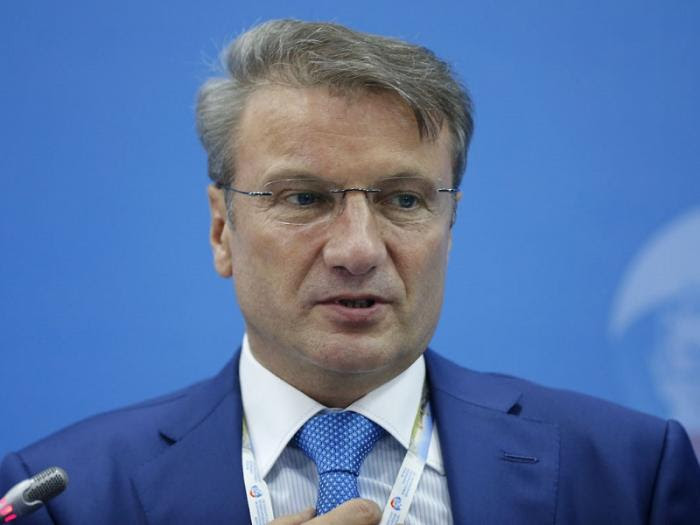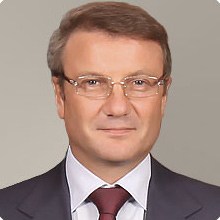
The head of Russia’s largest bank, Sberbank, has warned that Russia risks falling behind in technological innovation if it bans virtual currencies and their underlying blockchain technology.
Gov’t Should ‘Not Get in the Way’

It is “critically important” for the government to not get in the way of groundbreaking technologies, according to Sberbank CEO, Herman Gref, reports Tass. Otherwise, the country’s tech sector risks falling behind other nations.
“In my view, it is critically important to determine the role and position of the government, and even better to stimulate instead of prohibit the development of groundbreaking technologies, namely the blockchain,” the CEO stated at the recently-held Moscow Financial Forum.
According to Gref, blockchain technology can continue to develop further, starting with virtual currencies. Then, blockchain could serve as the foundation for all types of applications, integrating them into finance and other industries.
Gref warned:
[I]f barriers are put up at the first stage, then we could lose the second and third stages and will always be behind. Frontrunners are already beginning to emerge in blockchain technology.
The head of Russia’s largest commercial bank also believes that the gap between the private and government sectors will continue to widen.
“Whatever the government’s role should be — they should at least not get in the way. Though this is often difficult and doesn’t always happen,” he said. “Blockchain technology began with virtual currencies and, unfortunately, the [Russian] government is very allergic to virtual currencies as we’re moving towards a ban,” the CEO stated.
In his view, the government is ineffective and “cannot innovate, regardless of how big the budget is.”
“No government in the world has been a driver of innovation even if setting KPI’s for the heads of state-run companies to innovate,” Gref added.
Sberbank Sees a Blockchain Future
 Sberbank has been one of the biggest supporters of blockchain technology in Russia. It vowed to join the R3 international consortium in December 2015.
Sberbank has been one of the biggest supporters of blockchain technology in Russia. It vowed to join the R3 international consortium in December 2015.
Then, in August, Gref stated that Sberbank will take part in a Russian blockchain consortium. However, he admitted the bank had not yet reached a final decision on joining.
Gref echoed the comments made by Russian president Vladimir Putin’s business advisor, who stated in June that the country should “become the world leader in the Blockchain space.”
Nevertheless, Russia has been rather inconsistent in its treatment of Bitcoin and other virtual currencies. From talks of outright bans to treating Bitcoin like forex currencies, the climate has been anything but clear. Most recently, Russian authorities banned P2P exchange LocalBitcoins, contradicting previous claims of legal approval.
But Sberbank’s blockchain ambitions could ultimately land with a thud — or maybe they still don’t get it. In any case, the promise of private blockchains has not yet been realized as testing and research continue worldwide.

